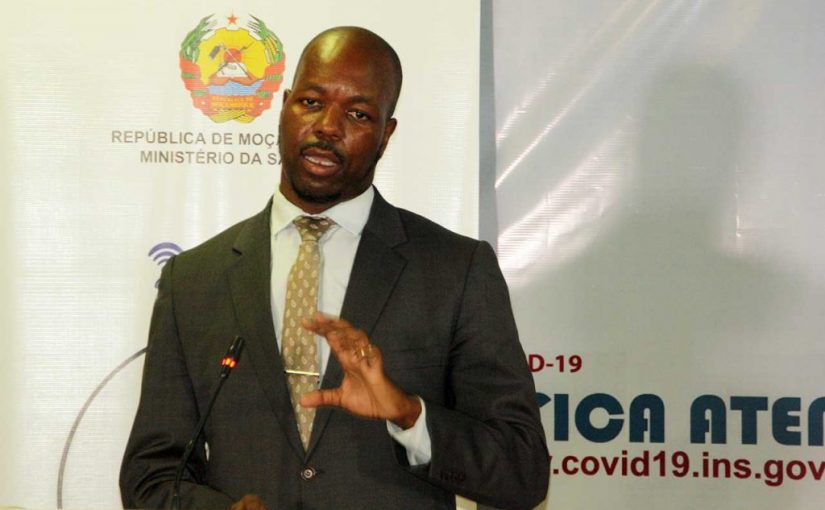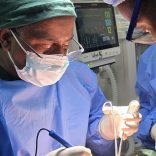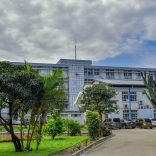Mozambique: Minister joins surgical team to participate in a thyroidectomy
Mozambique: Senior health official calls for reduced mobility – AIM report

File photo: INS
The deputy general director of Mozambique’s National Health Institute (INS), Eduardo Samo Gudo, warned on Monday that road traffic, including that of pedestrians , should be reduced by about 50 per cent throughout the country, in order to improve the prospects of halting the spread of the respiratory disease Covid-19.
“Unfortunately, we have witnessed intense road traffic between Maputo and Matola and in the provincial capitals”, he said. A comparison of mobility in the main cities before and after the declaration of a state of emergency on 1 April “shows that there has been a small decline, of about 15 per cent, while we need at least 50 per cent to keep the level of transmission of the virus very low”.
“We are a long way from this 50 per cent”, Samo Gudo said, “because there are still many citizens who are not complying with the measures. The schools have been closed, workplaces are on shift systems, so we have to stay at home. Otherwise we are contributing to spreading the epidemic”.
If Mozambican citizens do not become aware that they must collaborate with the authorities to block the transmission and spread of Covid-19, the scenario would become “devastating”, he warned.
“If we do not reduce our mobility, by staying at home, then the epidemic will progress and will accelerate, and this we cannot allow, because the price for the country and for society will be very high, as we have seen in other countries”, said Samo Gudo. The unspoken warning here is that, if the current restrictions are not respected, the government will have no choice, but to impose a complete lockdown, banning all movement, apart from the bare essentials, and forcing people to stay at home.
In Nampula, heavy traffic is visible in the streets, and in the markets, even of children, although the schools are closed.
The Secretary of State for the province, Mety Gondola, told AIM that measures to raise awareness of Covid-19 and of the need for restrictive measures will be stepped up. “We have made some progress”, he claimed, “but we agree there is still a lot to be done.”
In this awareness campaign, he said, Mozambican languages would be used, as well as Portuguese. Sportspeople, artists and other people who are influential in Nampula society would spread the message.
Gondola added that a Nampula textile factory has increased its production to place 10,000 face masks a day on the market. “Soon the masks will be available for sale in the public pharmacies”, he said.
Gondola has personally distributed masks to the drivers of motor-bike taxis, and he promised that this distribution will continue in the coming days.












Leave a Reply
Be the First to Comment!
You must be logged in to post a comment.
You must be logged in to post a comment.